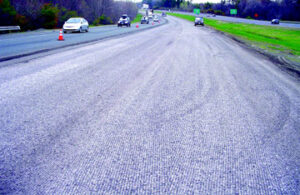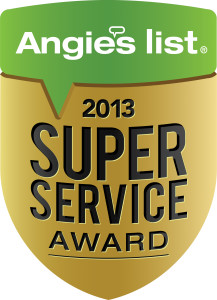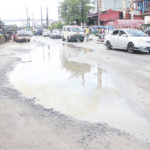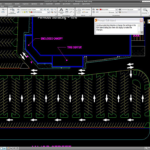Cheapest asphalt pavement method
 Choosing to pave the driveway with asphalt is not only wise economically, but it is also actually the standard in many harsh climates, where plowing and variable weather tend to break down more expensive driveway surfaces.
Choosing to pave the driveway with asphalt is not only wise economically, but it is also actually the standard in many harsh climates, where plowing and variable weather tend to break down more expensive driveway surfaces.
In general driveway paving is the most common application of asphalt due to its many benefits and affordable cost. In fact, it is one of the most affordable options when it comes to driveway paving, costing $3-$4 per square foot on average.
In addition to that with this material, there are several asphalt patching techniques that may be used for filling cracks, pothole repairs in many asphalt application such asroads, pavements, parking lots, playgrounds, tennis courts, etc. Which one is the cheapest asphalt method to use is depended on the usage and purpose.Here are some of commonly-used asphalt repair methods:
- Throw-and-roll
This is a temporary patching technique in which liquid asphalt is filled into a hole and then rolled over. It is typically done in winter or adverse weather conditions when a “quick fix” or emergency patch is required. It may be applied in layers and starts to solidify as it reacts with air.
- Semi-permanent patches
A longer-lasting solution, this method requires proper surface preparation. Water and debris are first removed with the help of a broom or air compressor after which the area to be patched is cut back with a hand tool or power equipment. The prepared hole is then filled with the patching mix and compacted with a roller.
- Spray injection method
In this method, special truck-mounted equipment is used to first blow out water and debris from the crack or pothole, after which aggregate and emulsion will be injected into it. Since the injection is done at high-pressure, no compaction is required. This asphalt patching technique may be ideal in adverse conditions and is often preferred to the temporary throw-and-roll method.
- Full-depth patching
Considered a permanent repair method, this technique involves excavating the patching area to the depth of 4 inches or more and extending at least one foot into the surrounding area in order to provider firmer support. A tack coat is applied prior to the asphalt mix followed by a backfill for proper bonding.
When done the right way, patching helps prevent further deterioration and avoid huge repair expenses. Materials used may range from hot mix asphalt to asphalt emulsion mixes and proprietary patching mixes with special blends. The local paving contractor will determine the proper asphalt patching technique and material based on the extent of damage to be repaired.
Asphalt Pavement Method
While the average cost for asphalt paving is relatively low, there are several factors that can affect the final price for any project involving this material, specifically if homeowners are laying down a new driveway or another paved surface. The following list outlines some of these common factors that can impact asphalt paving costs.
- Local Material Cost: factors such as freight, the current market price, and fuel surcharges all impact the raw price of material used for paving.
- Drainage and Geotextile Additions: the life of any paved surface improves with proper drainage.
- Base Coat: At a minimum, plan on two coats, base, and top, for any job. The higher the material quality and the more time spent on the base, the longer the life of the paved surface will be. This costs $1-$2.50 per square foot.
- Specialized Top Coats and Sealants: General top coats and sealants cost between $1-$2.50 per square foot. Special features such as chip seal and stamped or colored topcoats add another $3-$5 per square foot.
- Excavation and Clearing: If no current surface exists, workers need to make sure there is adequate room for the new pavement.
- Foundation: Installing 8-10 inches of gravel below the asphalt is necessary for drainage. This can add on $1-$2.50 per square foot of surface area.
Because so many factors influence the price of any asphalt paving job, determining the final costs without a professional estimate is tough. In addition to the labor and material costs specific to the area, there can be a number of add-ons and other factors that impact the bottom line.
- Engineering: Costs increase depending on the quality and topography of your property, including slopes, angles, and curves leading to the road. Specialists who can properly design drainage along with increased labor hours tend to drive up the costs of such projects.
- Local Permits: Any driveway or surface that connects with a public road must meet all the requirements of the municipality responsible for that road. For this, a permit may be needed or change plans in order to compensate for such requirements.
- Weather: The stresses placed on the asphalt surface throughout the year due to temperature fluctuations may require the sealant application more often to preserve its quality. While most surfaces need resealing only every 3-5 years, some experts recommend yearly sealing in some circumstances.
Generally, professionally installed and well-drained and maintained asphalt surfaces last for an average of 20 years before they require complete resurfacing. However, in certain climates, high-quality installations can last for up to 35 or as little as 10. Employing a reliable, honest paving professional to install and maintain the asphalt is the best way to get the longest life out of the paving job. This is will also ensure no more additional cost later on.
Contact us
 Phone Call |
 Text Message |
 |







